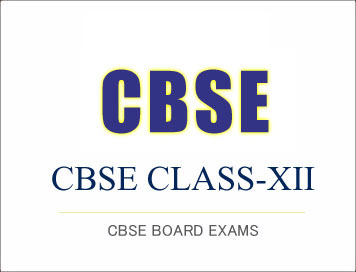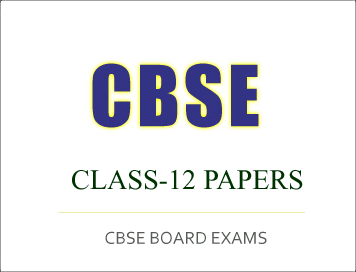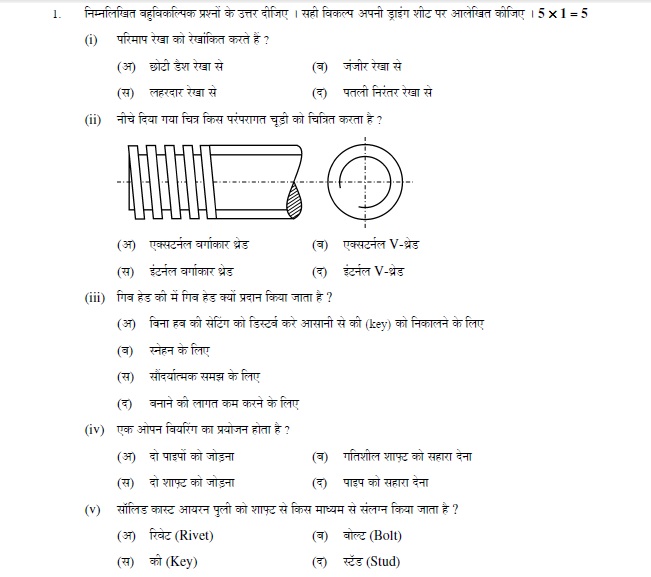CBSE PORTAL : CBSE 2017-18 Syllabus Class-12 : Accountancy | |
- CBSE 2017-18 Syllabus Class-12 : Accountancy
- CBSE Class-12 Exam 2017 : Delhi Scheme Question Paper, Commercial Art
- CBSE Class-12 Exam 2017 : Delhi Scheme Question Paper, Painting
- CBSE Class-12 Exam 2017 : Delhi Scheme Question Paper, Agriculture
- CBSE Class-12 Exam 2017 : Delhi Scheme Question Paper, Engineering Graphics
- CBSE 2017-18 Syllabus Class-12 : Agriculture
| CBSE 2017-18 Syllabus Class-12 : Accountancy Posted: 18 Aug 2017 11:49 PM PDT
CBSE Class-12 Syllabus 2017-18Subject: AccountancyRationale The course in Accountancy is introduced at +2 stage of Senior Secondary education, as formal commerce education is provided after first ten years of schooling. With the fast changing economic scenario and business environment in a state of continuous flux, elementary business education along with accountancy as the language of business and as a source of financial information has carved out a place for itself at the Senior School stage. Its syllabus content should give students a firm foundation in basic accounting principles and methodology and also acquaint them with the changes taking place in the presentation and analysis of accounting information, keeping in view the development of accounting standards and use of computers. Against this background, the course puts emphasis on developing basic understanding about the nature and purpose of the accounting information and its use in the conduct of business operations. This would help to develop among students logical reasoning, careful analysis and considered judgement. Accounting as an information system aids in providing financial information. The emphasis at Class XI is placed on basic concepts and process of accounting leading to the preparation of accounts for a sole proprietorship firm. Computerized accounting is becoming popular with the increasing use of computers in business. Keeping this in view, the students are exposed compulsorily to the basic knowledge about computers and its use in accounting in the same year. In class XII, Accounting for Partnership Firms and Companies are to be taught as a compulsory part. Students will also be given an opportunity to understand further about Computerized Accounting System, as an optional course to Analysis of Financial Statements. Objectives:
CLICK HERE TO DOWNLOADCourtesy: CBSE
|
| CBSE Class-12 Exam 2017 : Delhi Scheme Question Paper, Commercial Art Posted: 18 Aug 2017 01:07 AM PDT |
| CBSE Class-12 Exam 2017 : Delhi Scheme Question Paper, Painting Posted: 18 Aug 2017 12:56 AM PDT |
| CBSE Class-12 Exam 2017 : Delhi Scheme Question Paper, Agriculture Posted: 18 Aug 2017 12:48 AM PDT |
| CBSE Class-12 Exam 2017 : Delhi Scheme Question Paper, Engineering Graphics Posted: 18 Aug 2017 12:39 AM PDT |
| CBSE 2017-18 Syllabus Class-12 : Agriculture Posted: 18 Aug 2017 12:17 AM PDT
CBSE Class-12 Syllabus 2017-18
Subject: AgricultureAgriculture has been the prime enterprise for the National Economy of this country for centuries and that is why India is called Agrarian country. This sector also provides maximum employment to the people of this country. Agriculture is the production of food and fiber, ever since its advent. It has undergone several paradigm changes. The major landmark in Agriculture happened during 1960s when the country witnessed Green Revolution. which boosted the crop production. Use of short duration crop varieties, fertilizers, pesticides and agricultural tools and expansion of area under irrigation were important interventions brought in Agriculture. Livestock is an integral part of Agriculture in India. Their by-products are used to build and maintain soil fertility along with plant protection. The animal products such as meat, milk and eggs are the source of nutrients in human diet as well. Several emerging dimensions of contemporary Agriculture such as organic agriculture and animal husbandry practices are now getting attention. Food processing, value addition and preservation have been the focus of policies formation in recent times which are helpful in minimizing the wastage in Agriculture. This is helping in better income realizing through marketin of value added products. The income from Agriculture can also be increased by associating in subsidiary enterprises such as mushroom production, bio-pesticides, beekeeping, vermi-culture etc. Objectives: The board objectives of teaching Agriculture at Senior Secondary level are:
CLICK HERE TO DOWNLOADCourtesy: CBSE
|
| You are subscribed to email updates from CBSE PORTAL : CBSE, ICSE, NIOS, JEE-MAIN, AIPMT Students Community. To stop receiving these emails, you may unsubscribe now. | Email delivery powered by Google |
| Google Inc., 1600 Amphitheatre Parkway, Mountain View, CA 94043, United States | |


